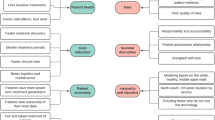Abstract
A digital twin is a virtual representation of real-world entities and processes, synchronized at a specified frequency and fidelity. The capability of digital twins is continually evolving from simple decision support, via decision augmentation for end users to autonomous decision automation. This evolution is enabled by increasingly sophisticated technologies used by digital twins, e.g. advanced analytics, IoT and AI. In many applications, multiple digital twins can be used to address different system functionality, and composed as required, leading to potentially quite complex technical systems. Digital twins further increasingly require explicit consideration of socio-economic factors, to ensure building responsible digital twin solutions, minimizing potential harm for the users. This paper discusses how such socio-economic factors, particularly the enterprise, legal and ethics policies and various value constraints, can be gradually transformed into a set of governance rules for building, operating and evolving responsible digital twin solutions and ecosystems. These policies include voluntary type of rules, e.g. digital ethics norms, as well as regulatory policies, which impose formal legal obligations, e.g. legislative and regulatory mechanisms. We use two application domains at two ends of the complexity spectrum, namely personalized health care and renewable energy, to illustrate our approach.
Access this chapter
Tax calculation will be finalised at checkout
Purchases are for personal use only
Similar content being viewed by others
References
Digital Twin Consortium. Working Groups (2023). https://www.digitaltwinconsortium.org/workinggroups.htm
IoT Analytics. Decoding Digital Twins: Exploring the 6 main applications and their benefits (2023). https://iot-analytics.com/6-main-digital-twin-applications-and-their-benefits/
Markets and Markets. Digital Twin Market by Application, Industry, Enterprise, and Geography – Global Forecast to 2028 (2023). https://www.marketsandmarkets.com/Market-Reports/digital-twin-market-225269522.html
Grieves, M., Vickers, J.: Digital twin: mitigating unpredictable, undesirable emergent behavior in complex systems. In: Kahlen, F.-J., Flumerfelt, S., Alves, A. (eds.) Transdisciplinary Perspectives on Complex Systems, pp. 85–113. Springer, Cham (2017). https://doi.org/10.1007/978-3-319-38756-7_4
XMPro. Why Decision Intelligence with Digital Twins is Kinda Like DCS for Automation and Control (2023). https://xmpro.com/why-decision-intelligence-with-digital-twins-is-kinda-like-dcs-for-automation-and-control/
Digital Twin Consortium. Capabilities Periodic Table (2022). https://www.digitaltwinconsortium.org/initiatives/capabilities-periodic-table/
Digital Twin Consortium. Platform Stack Architectural Framework: An Introductory Guide Form (2023). https://www.digitaltwinconsortium.org/platform-stack-architectural-fram-formework-an-introductory-guide-form/
IDTA. Submodels (2023). https://industrialdigitaltwin.org/en/content-hub/submodels
McKinsey. Digital twins and the enterprise metaverse (2022). https://www.mckinsey.com/capabilities/mckinsey-digital/our-insights/digital-twins-the-foundation-of-the-enterprise-metaverse
ISO/IEC 15414, Information technology: Open distributed processing, Reference model – Enterprise Language, 3rd edn. (2015)
Milosevic, Z.: Ethics in digital health: a deontic accountability framework. In: 2019 IEEE 23rd International Enterprise Distributed Object Computing Conference (EDOC), Paris, France, pp. 105-111 (2019). https://doi.org/10.1109/EDOC.2019.00022
Wickramasinghe, N., et al.: Digital twins to enable better precision and personalized dementia care. JAMIA Open 5(3), ooac072 (2022). https://doi.org/10.1093/jamiaopen/ooac072
Responsible AI Pattern Catalogue, CSIRO/Data61. https://research.csiro.au/ss/science/projects/responsible-ai-pattern-catalogue/
Safe and responsible AI in Australia, Discussion paper, June 2023, Australian Government, Department of Industry, Science and Resources
Gemini Principles, University of Cambridge (2022). https://www.cdbb.cam.ac.uk/DFTG/GeminiPrinciples
Interoperability Framework 2.0. https://developer.digitalhealth.gov.au/resources/interoperability-framework-v2-0
Milosevic, Z., Pyefinch, F.: Computable consent – from regulatory, legislative, and organizational policies to security policies. In: Almeida, J.P.A., Karastoyanova, D., Guizzardi, G., Montali, M., Maggi, F.M., Fonseca, C.M. (eds.) EDOC 2022. LNCS, vol. 13585, pp. 3–18. Springer, Cham (2022). https://doi.org/10.1007/978-3-031-17604-3_1
Hassanzadeh, H., Boyle, J., Khanna, S.: Digital twins in healthcare: an operating theatre flow modelling case study. In: Digital Health Institute Summit. AIDH, Brisbane (2022). Csiro: EP2022-2887. http://hdl.handle.net/102.100.100/444330?index=1
Digital Twins: The New Frontier for Personalized Medicine? Appl. Sci. 13(13), 7940 (2023). https://www.mdpi.com/2076-3417/13/13/7940
Griffo, C., Almeida, J.P.A., Guizzardi, G.: Conceptual modeling of legal relations. In: Trujillo, J., et al. (eds.) ER 2018. Lecture Notes in Computer Science, vol. 11157, pp. 169–183. Springer, Cham (2018). https://doi.org/10.1007/978-3-030-00847-5_14
Bentley. Digital Twins for a Sustainable Grid (2022). https://blog.bentley.com/digital-twins-for-a-sustainable-grid/
Linington, P.F., Milosevic, Z., Tanaka, A., Vallecillo, A.: Building Enterprise Systems with ODP, An Introduction to Open Distributed Processing. Chapman & Hall/CRC Press (2011)
Report on the safety and liability implications of Artificial Intelligence, the Internet of Things and robotics. EUR-Lex (2020). https://eur-lex.europa.eu/legal-content/EN/TXT/?uri=CELEX:52020DC0064
Greefhorst, D., Proper, H.A.: Architecture Principles - The Cornerstones of Enterprise Architecture. The Enterprise Engineering Series. Springer, Heidelberg (2011). https://doi.org/10.1007/978-3-642-20279-7. ISBN 978-3-642-20278-0
Author information
Authors and Affiliations
Corresponding author
Editor information
Editors and Affiliations
Rights and permissions
Copyright information
© 2024 The Author(s), under exclusive license to Springer Nature Switzerland AG
About this paper
Cite this paper
Milosevic, Z., van Schalkwyk, P. (2024). Towards Responsible Digital Twins. In: Sales, T.P., de Kinderen, S., Proper, H.A., Pufahl, L., Karastoyanova, D., van Sinderen, M. (eds) Enterprise Design, Operations, and Computing. EDOC 2023 Workshops . EDOC 2023. Lecture Notes in Business Information Processing, vol 498. Springer, Cham. https://doi.org/10.1007/978-3-031-54712-6_8
Download citation
DOI: https://doi.org/10.1007/978-3-031-54712-6_8
Published:
Publisher Name: Springer, Cham
Print ISBN: 978-3-031-54711-9
Online ISBN: 978-3-031-54712-6
eBook Packages: Computer ScienceComputer Science (R0)




